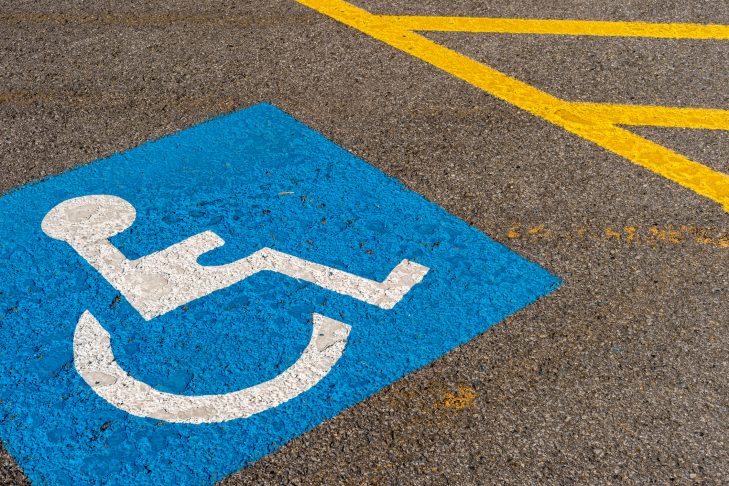Language preferences and connotations are constantly evolving—it can sometimes feel hard to keep up! In the spirit of Jewish Disability Awareness, Acceptance and Inclusion Month (JDAIM), when Jewish organizations and communities are working to raise awareness and promote the meaningful inclusion of people with disabilities and their families, I encourage you to take some time to examine your own personal understandings of disability in order to work toward a more inclusive society. One way to do so is to spend some time thinking about language, and how that language shapes our attitudes.
“It may seem logical, considering the role I’m in now,” reflected Tamar Davis, who became CEO of Gateways: Access to Jewish Education in 2020, “that I would’ve always felt comfortable talking about my own personal disability, and my experiences of advocating for myself in any situation. However, this was most definitely not the case until well into adulthood. Even to this day, I continue to wrestle with language in how I want to describe myself, my own child with a disability, and the children and teens whom Gateways serves every single day.”
At Gateways: Access to Jewish Education, we are listening to the voices of people with disabilities when making decisions about our own internal language guidelines, while recognizing that there are many different perspectives on this complex issue. For example, we have moved away from using the term “special needs” in our program materials and on our website. As the disability rights community has advocated, the needs of people with disabilities are no more or less special than the needs of people without disabilities. We all share the basic human needs of connection to community, physical access and education. An inclusive community recognizes the right of all members to participate fully and modifies its structures and norms to ensure equal access for all. At Gateways, we seek to amplify the voices of individuals with disabilities, and we defer to individual language preferences whenever possible.
Alison Lobron, the inclusion coordinator at Temple Shalom in Newton, grapples with language both as a parent and as a professional. “The first thing I think of is that it is really hard to keep track of the preferences,” says Alison. “My fear of making a mistake sometimes overrides my ability to speak openly. I don’t want to say the wrong thing. Sometimes people don’t ascribe best intention.”
We recognize that many people are not comfortable with the word “disability,” as it all too often comes along with a negative cultural connotation. Yet it is the word that the disability rights community has chosen to reclaim in order to connect them to an identity and community that fights for equal rights and pushes back against ableism.
“I have no problem saying today that I am disabled. I have access and mobility challenges and require accommodations to navigate in our society,” remarked Ethan Freishtat, Gateways board member. “For me, ‘disability’ is the correct term. It feels accurate and right. And it doesn’t make me ‘less than,’ it just means I’m different. It doesn’t mean that I can’t live a full life, it just means I need accommodations.”
People with disabilities have advocated for using the term “disability” as an important step toward removing the stigma that often is associated with having a disability. Avoiding the term “disability,” they argue, can lead to the mindset that there is something inherently wrong with being disabled. See the #saytheword campaign to read more about the push to reclaim the word “disability.”
In this month of JDAIM, let us engage in this important work together to combat the stigma surrounding the word “disability.” Let us strive to create nonjudgmental spaces in which we can share our language preferences and engage in honest conversation. Ask yourself: What associations, positive or negative, do I have with terminology related to disability? What is at the root of my associations? Are my language choices informed by the voices of people with lived experience with disability? By shaping attitudes through the language of disability, we can each make a real difference in how we continue to raise awareness, acceptance and inclusion for all.
Tali Cohen Carrus is director of Gateways Jewish education programs.
This post has been contributed by a third party. The opinions, facts and any media content are presented solely by the author, and JewishBoston assumes no responsibility for them. Want to add your voice to the conversation? Publish your own post here. MORE

